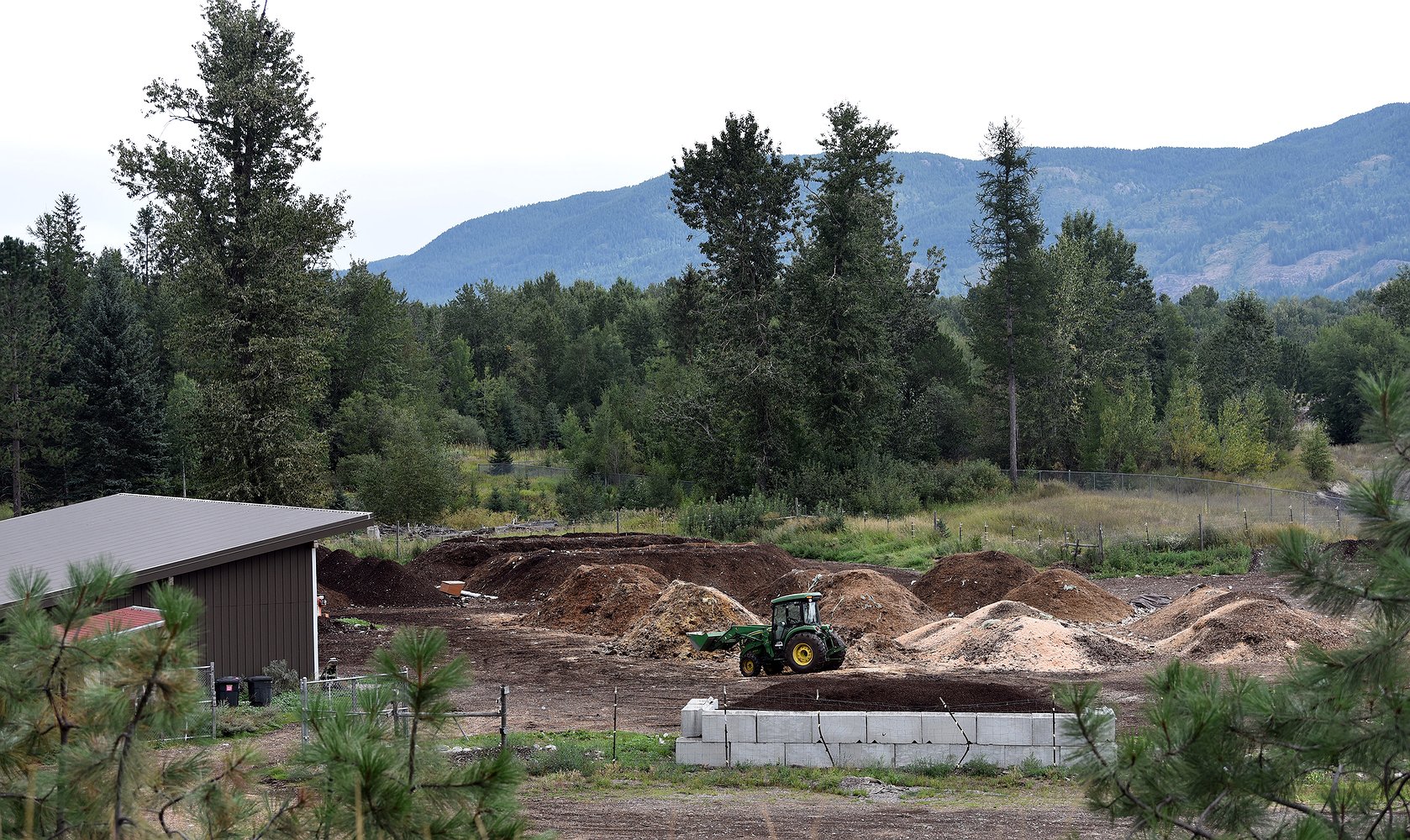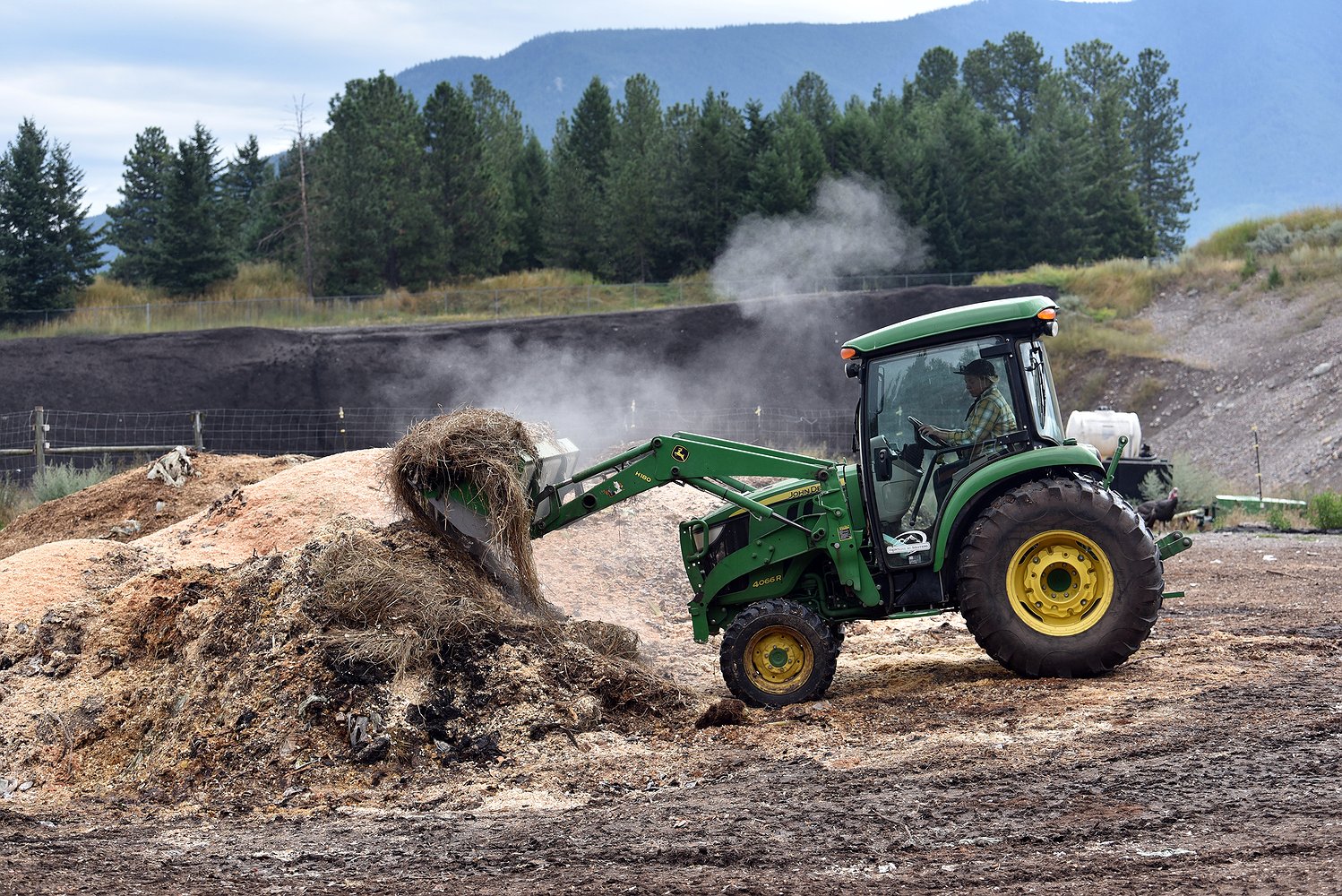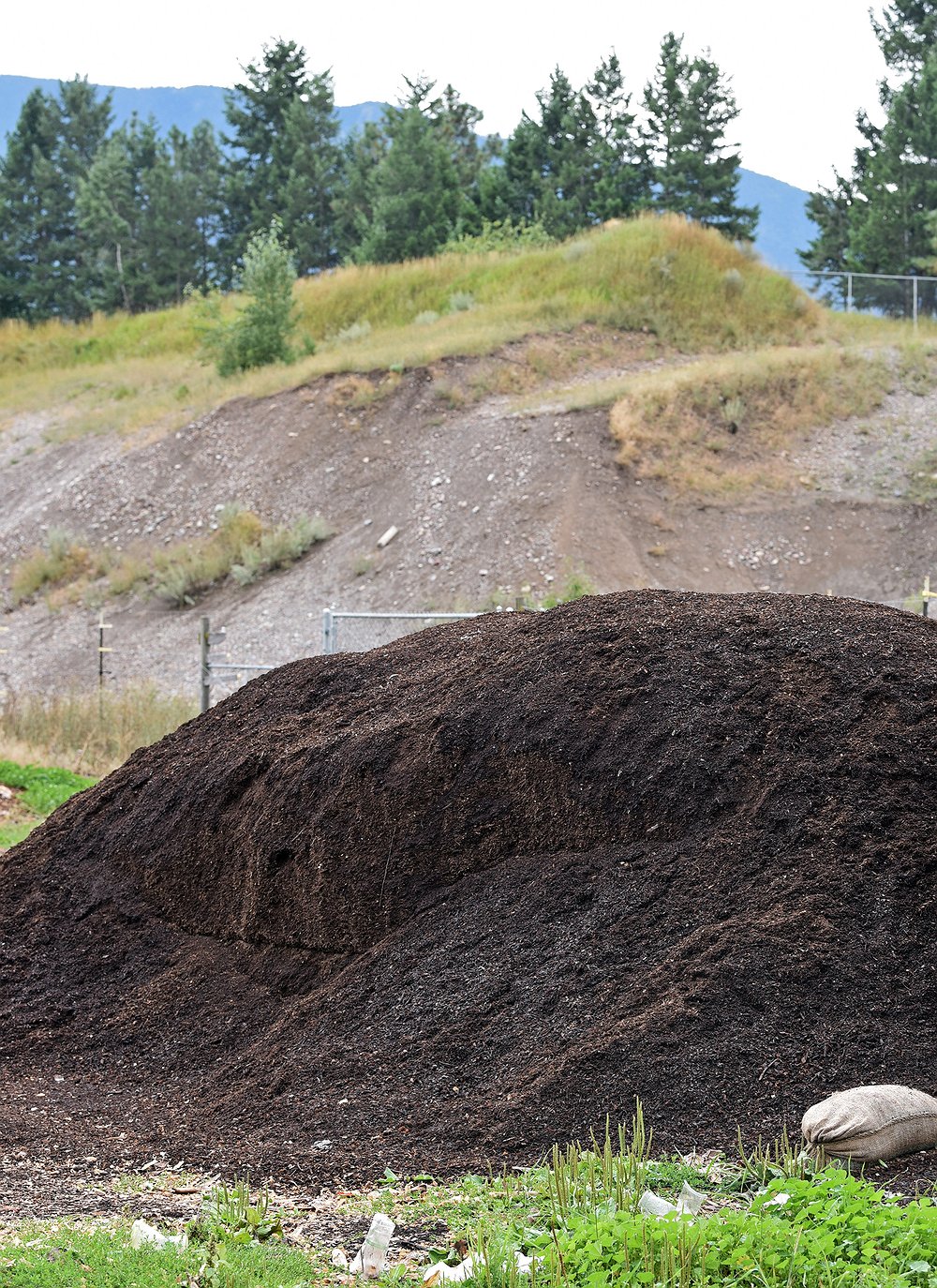Dirt Rich: Local compost facility collects nearly 1 million pounds of food waste
Do you have broccoli that’s been in the fridge too long? Have your bananas turned black? Couldn’t finish that beef burrito?
Composting food waste rather than dumping it in the landfill has positive effects on the soil and your wallet.
Last year, Dirt Rich Compost, the only composting facility in the Flathead Valley, collected over 872,000 pounds of food waste from local businesses and households in the area. Owner/operator Alissa LaChance expects to collect 1 million pounds in 2024.
When LaChance started Dirt Rich Compost in 2015, it was the only facility of its kind in Montana. Her goal is to make composting easy and accessible by providing residents and businesses with weekly organic waste pickup throughout the Flathead Valley.
Individuals and families can sign up to have food scraps picked up weekly at their doorstep, or opt to drop-off waste in a nearby, bear-proof bin. Residential customers earn compost each year.
Dirt Rich Compost accepts all organic material. Peter Kemper, sales and marketing specialist for Dirt Rich, said organic material doesn’t mean the scraps must be from certified organic food. Organic material just comes from natural materials – plants and animals.
Moldy bread, picked chicken bones, steak gristle, mushy fruits and vegetables can be composted, along with grass clippings and yard waste. All those half-eaten hot dogs and ignored mac and cheese clumps can be composted, too.
“To the microbes that are actually creating the composting, the heads of the composting process, it’s just nitrogen,” LaChance said of the material. “It doesn’t matter.”
According to the Environmental Protection Agency, more food reaches landfills than any other single material in everyday trash, constituting 24% of municipal solid waste.
“If you were to add yard waste and the other material that’s part of our compost, it’s 54%,” LaChance said. “I would invite people to imagine our huge hill of trash being reduced by half.”
Once in a landfill, the non-aerated setting causes organic waste to give off methane and toxic leachate. LaChance said that contrary to what some people think, the landfill does not require organic materials to function properly. Rather, organic waste takes up space and expanding the landfill is expensive.
“Our landfill is amazing, but we could be putting that material to good use and not be costing taxpayers as much money,” LaChance said.
The Flathead County commissioners recently approved increasing the fees for the landfill by 15%. The valley’s growing volume of waste was cited among the reasons for the fee adjustment.
DIRT RICH COMPOST also services large local events like the Under the Big Sky music festival, The Last Best Ride cycling race and the Whitefish Farmers Market, an event that attracts hundreds of visitors to Whitefish each week in the summer.
For the last four years or so, LaChance has worked with the Whitefish Farmers Market, where all the vendors use compostable dishes and utensils. Dirt Rich Compost bins are available at the market for leftover food along with the dishes.
“There are so many people that visit this valley and create waste and then we have to deal with it,” LaChance said. “We end up taking that material back to our site and incorporating it into our compost piles and processing it over six months. It becomes super nutrient rich compost that ends up back at farms and gardens across the valley.”
LaChance grew up in Whitefish and after attending college and spending time traveling, she was keen to return.
Her travels allowed her to see how other places recycle and deal with organic waste. She said she visited communities that were more engaged in how their waste stream was managed and better able to assure it was cyclical.
Before starting her business, LaChance was planning to be a farmer and studied soil ecology and food production. The cyclical nature of organics recycling is what she finds intriguing and exciting.
“Making sure our organics waste stream, which includes food waste leaves, garden cut back, grass clippings, all that type of thing, ends up back into our soil,” she said. “All those nutrients we’re harvesting and then we’re just encasing them in a landfill. I recognized it was really important for local growers to have access to high-quality compost.”
Many local farms, including Wicked Good, Two Bear and Purple Frog have used Dirt Rich Compost.
LaChance noted that only about 1% of residents in the Flathead Valley compost their scraps and just 2-3% of commercial businesses, yet she has seen huge progress in the nine years she has been in business. She realizes it takes time for the societal shift toward composting to happen.
"We have a long way to go and we’re here for it,” she said. “We’re trying to figure out ways to help [composting] be more accessible and help change culture in the valley around it to continue to increase what we can divert.”
For more information, visit www.DirtRichCompost.com or Instagram @DirtRichCompost.







